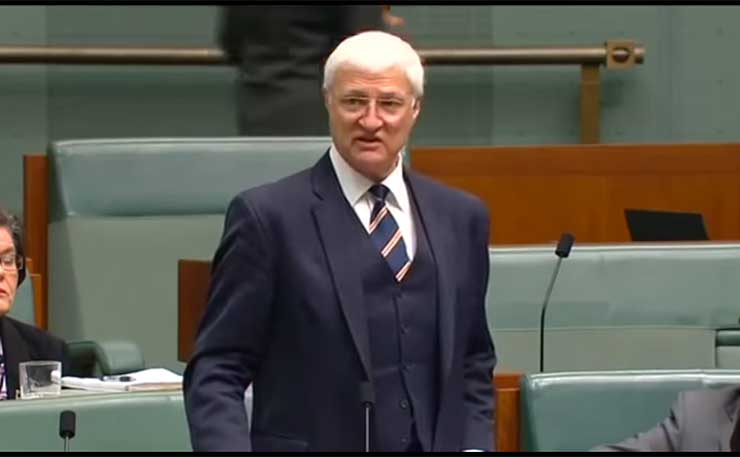The death of Cindy Waldron in crocodile infested waters in north Queensland recently does not justify the wholesale slaughter of an ancient species, writes Dr Jordan Sosnowski.
Bob Katter’s proposed croc cull is not just cruel. It’s plain stupid. There are better and more humane ways to stop crocodile attacks, and it starts with a fairly simple rule: take notice of the bloody signs.
Katter’s ill-thought out call to start charging rich Americans for “shooting safaris” comes after a crocodile attacked two women recently in the Daintree. One woman, Leeann Mitchell managed to escape. Cindy Waldron, however, did not.
I love animals, don’t get me wrong, but even I get the heebie-jeebies about crocodiles. Prehistoric and snarly, I’ll admit they’re not the most lovable of animals. But then again neither are some of my neighbours, and that still doesn’t give me the right to shoot them and turn them into designer handbags. Or what Katter’s proposed – advertising and charging someone else for the privilege.
While incidents like the recent one in Queensland are terrible and traumatic, killing crocodiles isn’t the way to stop crocodile attacks. The Independent MP’s plan is reactive and appeals to a “Jaws” type hysteria that is quite simply, completely irrational.
The same misguided justification (the “you kill us, we’ll kill you” rationale) has been adopted for culling sharks, even though it’s been proven not to work. I’m the first one to advocate for animals being intelligent, but no matter how smart they are, they’re just not going to be deterred by a kind of “eye for an eye” biblical-style punishment.
Matthew 5:38 aside, two experts from University of WA’s Oceans Institute have said that “when shark culling was carried out in Hawaii, between 1959 to 1976, over 4,500 sharks were killed and yet there was no significant decrease in the number of shark bites recorded.”

Similarly, culling crocs won’t make a difference. Back in the early 1970s, when 95 per cent of wild crocodiles had been culled almost to the point of disappearing, it didn’t stop the fatal attack on Peter Reimers near Mission River.
This is because it is actually very difficult to kill all crocodiles, and even killing a high percentage of them won’t protect people from their own stupidity.
This might sound harsh, but the chance of getting attacked by a crocodile is actually very low. So if you are attacked by one, it’s probably because you threw caution to the wind.
Statistics show there have been 0.7 fatal crocodile attacks per year across Australia. So there’s far more chance of being killed in a car accident (1,209 deaths last year) than being killed by a crocodile. In fact, you’re more than 140 times more likely to be severely injured in a lightning strike, than killed by a crocodile.
As far as luck goes, you’re also probably more likely to own a “luxury” Hermès Birkin handbag in your lifetime, than ever be killed by a crocodile. Although the number of crocodiles you’d have inadvertently killed in buying one, might tip the odds more in your favour.
Aside from the stats pointing towards the irrationality of a croc cull being the answer, the most worrying factor in approving a strategy like this is that it encourages people to kill animals. Australia has a terrible record of killing its own wildlife – think sharks, kangaroos, deer, brumbies and more. Rather than learning to live with nature, Katter’s strategy seeks to enforce dominance and destroy it, effectively feeding Australia’s “killing culture”.
Despite what some may think, public safety does not “demand” we destroy things if they pose a threat to us. There are many things that pose a threat to humans every single day. Getting in a car or taking a plane. These are all risks most of us are willing to take. We weigh up the probabilities of death and danger and then make an informed choice.
But getting in the water, at night, in a known croc-infested area, isn’t managing risk. It’s inviting danger.
And no cull, no matter how drastic, will ever be able to safeguard against that scenario.
Donate To New Matilda
New Matilda is a small, independent media outlet. We survive through reader contributions, and never losing a lawsuit. If you got something from this article, giving something back helps us to continue speaking truth to power. Every little bit counts.





